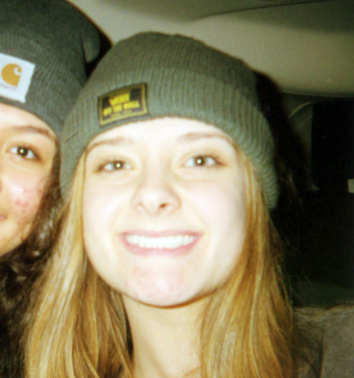Food waste in the cafeteria loses attention

The current recycling in the student cafeteria ends with not enough recycled.
Students and teachers alike are currently debating what can be done to reduce the food waste in the student cafeteria, and how to promote a clear and functional recycling program.
The current recycling program has most recycling bins in the back of the cafe, with lids on them, which according to some students, discourages them from recycling. The lids are shaped for the intended product to go in them, like paper and cans- but food is ending up in there, too.
Central receives its food through the company Quest, which works with buildings and grounds to remove waste and recycling.
“The cafeteria Quest, the company that runs the cafeteria, discussed potentially setting up a recycling area that would have clear labels… it proved to be too difficult to do something like that because in the past… students didn’t really follow the instructions,” said Cherise Lopez, English teacher, and Ecology Club sponsor. P
Part of the issue with the current program is that students do not fully understand what to actually recycle.
“Videos or some type of public relations announcement teaching students what to recycle could be viewed maybe in a science class or PE class,” Lopez said.
Even with the current program, students say they do try to recycle what they can.
“Students can make the appropriate choice for their situation. Some options might include: giving the food to a friend, keeping it for later, and returning it to their home,” said Mohmmad Ahmadi, junior.
Other students express their concern for food waste and how it doesn’t sit easily with many of them.
“It is not a good feeling when you see students throw away perfectly edible food and/or drinks in the trash while millions just in the U.S., and hundreds of millions around the world face hunger,” Ahmadi said.
A recent transfer from Downers Grove North said that DGN had a more robust system than Central.
“When I was at DGN, we had recycling bins in every classroom- and the first day I transferred to Central, I noticed there were significantly less,” said Leela Montiel, sophomore.
According to Montiel, other schools can be role models for Central by taking into perspective what the school’s’ teachers have done and the clubs it has.
“Some of my old teachers tried to help, but it usually depended on the teacher. For example, if by accident I put a water bottle in the trash, they’d tell me to recycle it,” Montiel said.
Many would like to see a more clearly labeled system in the cafeteria, but it depends on everyone coming together to fix the problem.
“We have to have the cooperation of the entire building,” Lopez said.
While Ecology Club has tried to get bins through grants in the past with no luck, the club members said they want to try again in the future.
“The cafeteria going green would help the school through making more students conscious about their environmental impacts and the simple things in their life they can do to help reduce them,” Ahmadi said.
But just because the school gets appropriate bins does not guarantee change. According to some students, the school and students can and should do more.
“I think the food that Central doesn’t use should be donated to shelters and we should start a compost or both,” Montiel said.

Emma Klein is a senior writer, and she’s so excited to write for Devils’ Advocate this year. Besides writing, she likes to spend her free time with...






